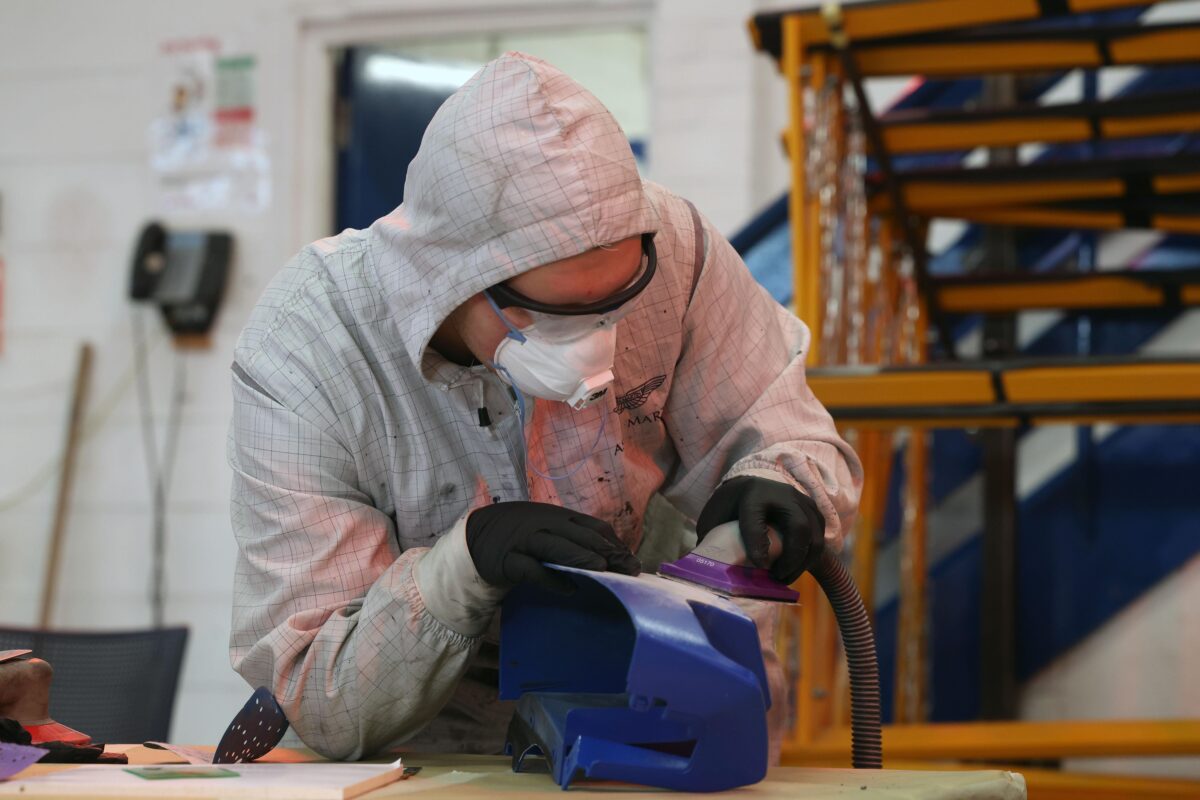Midlands employers warn of apprenticeship freeze

Business leaders are warning that apprenticeships will decline rapidly if the government pushes a controversial new levy through affecting young people and employers.
Birmingham-based engineering company owner Ian Nuttall is among employers who say the new Apprenticeship Levy will put an additional burden on business.
Mr Nuttall is the director of family business RH Nuttall, a specialist manufacturer and supplier of a wide range of non-metallic washers, gaskets, strips, sheeting, seals and insulation.
The company, based in Nechells has been supplying local, UK and global businesses with a range of quality stamped components since 1860 and was the supplier for special washers used for the thousands of poppies installed at the Tower of London, two years ago.
He said; “A lot of businesses are still unaware of this proposed new levy which will be a winner for the government but a loser for many employers and for young people.
“As a successful family-run business we value apprenticeships and currently have five trainees working either on the shop floor or in our offices. Everyone who wants to earn and learn deserves a chance but this latest idea by the government to effectively tax a company for taking on an apprentice is wrong. It will put a lot of firms off and will disadvantage young people.”
A Black Country survey of 500 small and medium-sized businesses has already revealed 65 per cent of those who took part will take on fewer apprentices and 55 per cent may stop taking on school-leavers altogether under the new proposals.
Training experts BCTG carried out the survey of companies across the country and discovered initially 70 per cent of firms were not even aware of the new Apprenticeship Levy, which could cost them thousands each year.
The government is introducing a new Apprenticeship Levy from April 2017, which will affect larger businesses and require smaller firms to make upfront cash payments for training.
Under government proposals, any smaller company with around 115 or fewer staff, who don’t pay the levy, will find themselves having to pay thousands of pounds up front for each apprentice they take on to cover the cost of accredited training. This is in addition to paying the Apprentice minimum wage of £3.30 per hour.
Currently apprenticeship training is free for all employers, however the government anticipates the new levy will bring up to £3 billion each year to fund apprenticeship places.
Chris Luty, BCTG director, who commissioned the survey, said under the new scheme many small companies, who provide good apprenticeships, will struggle to find the additional upfront money to pay for a 16-19-year-old’s training.
“Successful engineering companies like Nuttalls, which are going to feel the pain of Brexit, will now also have to take a hit with this proposed levy. It is effectively another tax on their wages bill. Companies who are aware of it are starting to tell us it means they may not take on as many apprentices or maybe none at all.
“The reality is business will lose out as well as young people looking for jobs with proper qualifications.”
BCTG, based in Taylors Lane, Oldbury, heads up a consortia of training providers across the Black Country, Birmingham and further afield. It carried out the survey because it says employers are simply not aware of the new proposals.
ENDS
Pictured is Ian Nuttall with some of his apprentices and Steve Burnet from BCTG
BCTG Employer Apprenticeship Levy Survey 2016
Key findings
Almost 70 per cent had not heard of the Apprenticeship Levy
More than 65 per cent will employ fewer apprentices or train their staff less if they are forced to pay the levy
55 per cent of SME employers will employ fewer apprentices or stop recruiting altogether if they are required to make a cash contribution
If SME employers are required to make a cash contribution 90 per cent say they think it should be less than £500 per apprentice
Only two per cent of employers surveyed would use a college to provide apprenticeship training most would choose a local training provider
94 per cent of employers are happy with the current arrangements for apprenticeship training











Responses